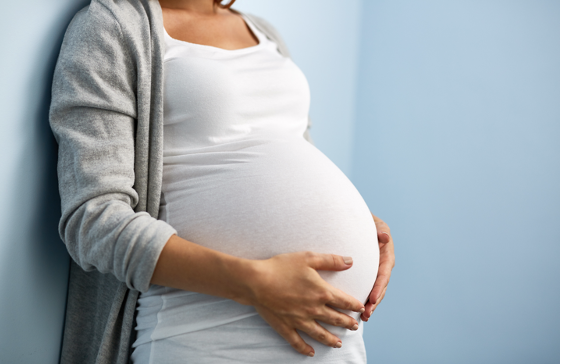Dr. Jason Helliwell opened Bakersfield Advanced Women’s Health Center to provide superior care for his patients. He has an extensive background in women’s health ranging from cosmetic surgery to OBGYN concerns. Throughout the pandemic, Dr. Helliwell has been helping women who are pregnant by providing them with information on COVID-19 and helping them make the most informed decisions for their health and the health of their baby.
The biggest issue facing pregnant women is whether to get one of the three CDC approved COVID-19 vaccines. The CDC has come out in support of all people 12 years and older receiving the vaccine. Whether or not they are pregnant or trying to become pregnant, the CDC has still suggested that they get their vaccine shot. Dr. Jason Helliwell says that while the vaccines were created and produced in record time, the safety and effectiveness of the vaccine for pregnant women has been tested and the medical community continues to gather more data that suggests the benefits of vaccine far outweigh any potential risks. Despite some misinformation on the internet, there has been no medical evidence to support concerns that the vaccines cause fertility issues in women or men.
Dr. Jason Helliwell is a strong advocate for the vaccine for pregnant women because women who are pregnant are more likely to get severely ill on account of the COVID-19 virus than their non-pregnant counterparts. Along with auto-immune issues, pregnancy is on the list created by U.S. health officials to dictate those at an increased risk of developing a serious medical issue as a result of COVID-19. Serious medical issues include a heightened risk of hospitalization and/or death. The numbers have shown that pregnant women with COVID-19 are much more susceptible to issues with their lungs than non-pregnant females around the same age. Dr. Helliwell believes it’s important that pregnant women understand that those ages 15-44 are still unlikely to develop a serious illness due to COVID-10, but there is a clear increased risk. When it comes to the health of the woman and her baby, no unnecessary risks should be taken. This makes the decision to get the COVID-19 vaccine that much easier.
The best way to think about the vaccine for pregnant women is that it is a source that helps the body create antibodies that may further protect the growing child. Data is being collected every day, but some studies have shown that umbilical cord blood had antibodies inside of it from the vaccine. This would show a link between the vaccine not only protecting the mother but the baby as well. More data will need to come out before anything conclusive can be ascertained, but this is certainly positive news.
Like all other adults, there’s no need for a doctor’s note to receive the vaccine. However, pregnant women are advised to talk to their OBGYN about their entire medical history. Dr. Jason Helliwell believes it’s important for pregnant women to feel as comfortable as possible with their decisions throughout their pregnancy journey. Getting advice from a professional can help ease concerns. Many women are fearful that if they get pregnant in between their two vaccine shots that they should not receive the second shot. However, the second shot simply provides more protection. It is likely that OBGYN doctors will also recommend the booster shots should they become available in the area where a pregnant woman lives. One thing that should be noted is that fevers have been linked to several potentially dangerous pregnancy outcomes. Dr. Jason Helliwell suggests talking to an OBGYN about the use of Tylenol or other acetaminophen should the vaccine shot cause the woman to run a fever.
Dr. Jason Helliwell on COVID-19Vaccines After the Birth of the Baby
Another big piece of misinformation widely consumed on the Internet is that it is unsafe to breastfeed a baby if the mother has received a COVID-19 vaccine. This simply is not true as the vaccine cannot cause an infection in either the person who received the vaccine or the baby who is being breastfed. If anything, the antibodies of the vaccine have been shown in many medical reports to be present in the breastmilk, which is great news for the baby and mother.
Every pregnant woman should be encouraged to speak with their doctor about not only COVID-19, but any pre-existing medical conditions they have. Other pre-existing conditions may cause for alarm when it comes to the vaccines, but pregnancy – or the desire to become pregnant – should not steer anyone away from receiving the COVID-19 vaccine, explains Dr. Jason Helliwell.






